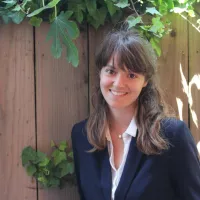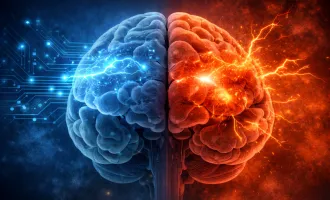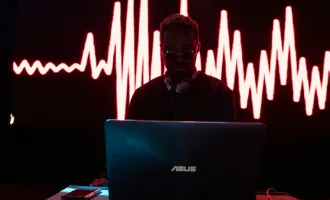To Be Laid Out
Nina Djukic’s story won first prize in the Synapse storytelling contest nonfiction category.
There are things we cannot know until we are laid open. By love. By grief. By death. By hands. There are things we cannot know until we are laid open; until we may no longer know them. Things written in us by DNA and development, by tenderness and loss.
By disease and injury. By birth and by time. In the anatomy lab, I have learned things about bodies that their owners never knew. But even for myself alive that’s true. There are things only our left-behind skeleton, preserved collagen and keratin, can say. Like the precise count of our bones, the sum of sesamoids and ribs and vertebrae. Our own fossil record.
Things the living cannot learn. Like the branching of our blood vessels, their whorls and varices. Feathered from the root like rivers, pinecones, trees. Unique watersheds for unique topography.
These are things I wouldn’t know if I hadn’t been given this window, this irrevocable intimacy. Unearned, it has at times felt wrong: invasive, voyeuristic, unnatural. It has at times, in its formaldehyde desensitization, felt like nothing at all.
It has in most other times felt like everything. Like awe, like grief, like memory. Like mortality, like history. Like recognition and like reckoning. Like breath.
Like all we’ve been and where we’re all going. A silence. A river. A darkness on either side, a brief instant of light.
There are things I’ve seen in the anatomy lab that most people never see. Things that make me see myself differently. Our fractals of organ and cell, our scales of detailed structure. Things that make ask: how did we know to grow like this, to make ourselves, to build a home—from carbon and water, keratin and nitrogen, salt and bone?
This body, this geometry, this resting place, this complexity. Its undeniable mystery.
Years ago in biochemistry, I learned that human DNA replication takes place at a rate of 50 nucleotide base pairs per replication fork per second. This means that the entire human genome can be copied in a few hours.
I found this incredible. Yet to see in front of me all that DNA has built, another thing entirely.
It is astonishing, this work of building that our bodies do—creating structure out of script. In these molecules—these atoms, these acids, these purines and pyrimidines—the instructions: to make the body on the table, to make mine. To make grief and love and life.
And as we built, so we unbuild: in the lab, with probe and scalpel, both speeding and slowing the work done by time. I hold a heart in my hands. I trace a nerve. I reach through skin, past perineum and peritoneum, into the chambers where everything is held.
I am overwhelmed, I am vulnerable and fascinated, I am baffled, quiet; I am more alive by contrast. I did not know, that I was all of this; that everyone I’ve ever loved was all of this.
I am stuttered. In awe.
And in the body there is endless awe, endless wonder. That we are so much the same, and yet so changed. That we are filled with variations which disorder and sustain us, which rearrange us. That we follow the same patterns as roses, as corals, as ginkgoes: pulsing and senescing. Part darkening, part bloom.
And awe, in this, too: that someone, once, who walked and slept and breathed, who felt and dreamed, who danced and wept and wandered and wondered, who sang and spoke, gave to me, without knowing me, their body: that most intimate and useful thing, that scaffolding for everything. That they had no use for any longer, wherever they went.
It is this awe, this awareness of the magnitude of the gift, that makes the lab, the looking, the laying open bearable. That fission of intimacy and distance, that gain and loss. That knowing, about themselves, what they couldn’t, and never will.
I try, if nothing else, to be grateful for this: to find within my awe an honoring. And a remembering: that to place my hands on someone’s skin— in disease or death or desire or healing—is always precious. To invite it always generous.
That I reach in—I lay open—from my own instant of light. Darkness on either side.
There are things we cannot know until we are laid open. By love. By grief. By death. By hands.
And there are things we cannot know until we open. That in that opening I am laid open too. In front of you.




